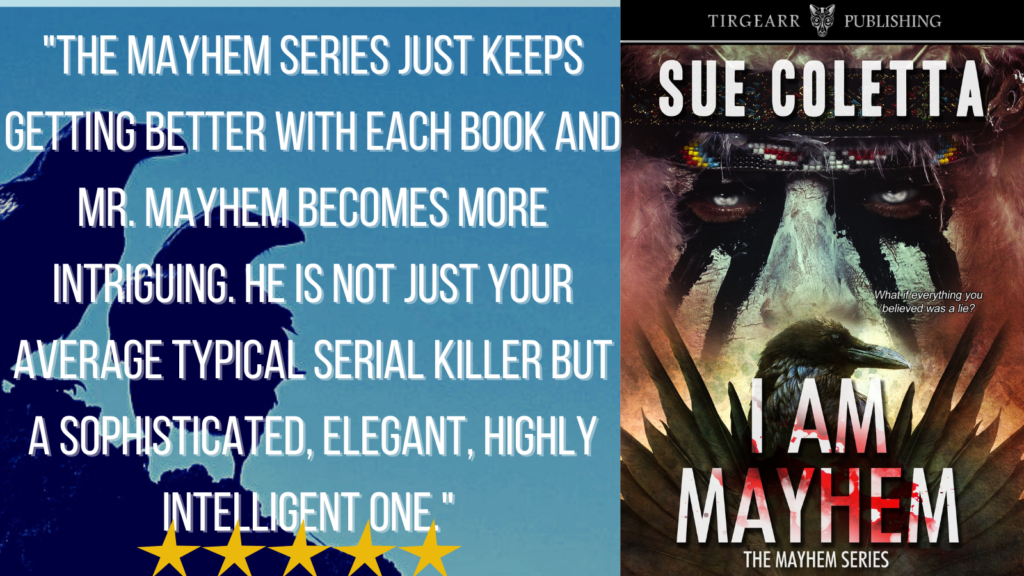 Whether you’re working today, grillin’, or hanging poolside, Happy Memorial Day! For those outside the U.S. a belated but heartfelt Happy Remembrance Day!
Whether you’re working today, grillin’, or hanging poolside, Happy Memorial Day! For those outside the U.S. a belated but heartfelt Happy Remembrance Day!
I hope the following shortcuts will help save you productivity time when you return to the keyboard. I’ve broken the keystrokes into two sections — Windows and Mac — to act as a quick and easy reference guide.
Please note: Today is all about MS Word. For other shortcuts, such as inserting advanced symbols/characters, WordPress, or YouTube, see Writing Hacks: Keyboard Shortcuts. Please ignore my wonky columns. 😉
COMPOSING & EDITING WINDOWS MAC
Create a new document Ctrl-N ⌘-N
Open document Ctrl-O ⌘-O
Save document Ctrl-S ⌘-S
Open “Save As” F12 ⌘-Shift-S
Close document Ctrl-W ⌘-W
Print document Ctrl-P ⌘-P
Select All Ctrl-A ⌘-A
Copy to clipboard Ctrl-C ⌘-C or F3
Paste from clipboard Ctrl-V ⌘-V or F4
Delete selection & copy to clipboard Ctrl-X ⌘-X or F2
Undo last action Ctrl-Z ⌘-Z or F1
Redo last action Ctrl-Y ⌘-Y
Add comment Ctrl-Alt-M ⌘-Option-A
Turn revision tracking on/off Ctrl-Shift-E ⌘-Shift-E
Run spelling/grammar check F7 ⌘-Option-L or F7
TEXT FORMATTING
Bold Ctrl-B ⌘-B
Italics Ctrl-I ⌘-I
Underline Ctrl-U ⌘-U
Double underline Ctrl-Shift-D ⌘-Shift-D
Underline words, not spaces Ctrl-Shift-W ⌘-Shift-W
Strikethrough text Alt-H, 4 ⌘-Shift-X
All caps Ctrl-Shift-A ⌘-Shift-A
Superscript text Ctrl-Shift-+ ⌘-Shift-+
Subscript text Ctrl-= ⌘-=
Increase font size Ctrl-Shift-> ⌘-Shift->
Decrease font size Ctrl-Shift-< ⌘-Shift-<
Insert hyperlink Ctrl-K ⌘-K
Open font dialog box Ctrl-D ⌘-D
or Ctrl-Shift-F
PARAGRAPH FORMATTING
Left-align text Ctrl-L ⌘-L
Right-align text Ctrl-R ⌘-R
Center-align text Ctrl-E ⌘-E
Justify text Ctrl-J ⌘-J
Indent paragraph Ctrl-M Ctrl-Shift-M
Remove indentation Ctrl-Shift-M ⌘-Shift-M
Change to single spaced Ctrl-1 ⌘-1
Change to double spaced Ctrl-2 ⌘-2
Change to 1.5 spaced Ctrl-5 ⌘-5
Remove paragraph formatting Ctrl-Q
Open Apply Styles task pane Ctrl-Shift-S
Open Styles pane Ctrl-Alt-Shift-S ⌘-Option-Shift-S
DOCUMENT NAVIGATION & VIEWS
Move up one paragraph Ctrl-Up arrow ⌘-Up arrow
Move down one paragraph Ctrl-Down arrow ⌘-Down arrow
Move right one word Ctrl-Right arrow ⌘-Right arrow
Move left one word Ctrl-Left arrow ⌘-Left arrow
Move to top of document Ctrl-Home ⌘-Home or ⌘-Fn-Left arrow
Move to bottom of document Ctrl-End ⌘-End or ⌘-Fn-Right arrow
Go to dialog box Ctrl-G or F5 ⌘-Option-G or F5
Switch among last four places in doc Ctrl-Alt-Z
Switch to Print Layout Ctrl-Alt-P
Switch to Outline View Ctrl-Alt-O
Switch to Draft View Ctrl-Alt-N
Switch to Read Mode View Alt-W,F
Split document window/remove split Ctrl-Alt-S
Display Help F1
FIND AND REPLACE
Find Ctrl-F ⌘-F
Find and Replace Ctrl-H or Alt-H-R ⌘-H-R
Find tab (inside Find and Replace) Alt-D
SPECIAL CHARACTERS RECOGNIZED BY FIND AND REPLACE
Type these special characters into the Find box to search document:
- Em dash
- En dash
- Em space
- En space
- Copyright symbol
- Registered symbol
- Trademark
- Section symbol
- Paragraph symbol
- Ellipsis
- Double opening quote
- Double closing quote
SPECIAL CHARACTERS IN DROP-DOWN MENU
Within the Find and Replace dialog box, choose one of the following special characters:
- Em dash
- En dash
- Nonbreaking hyphen
- Optional hyphen
- Nonbreaking space
- Section symbol
- Paragraph symbol
I find it easier to create my own shortcuts for special characters and symbols I use on a regular basis. For example, if you want to create a shortcut for the em dash, go to Insert > Advanced Symbol > Special Characters. At the bottom of the dialog box click Keyboard Shortcut and a new dialog pops up. In the Press New Keyboard Shortcut box, type Ctrl-E or whatever is easy to remember. Click OK and you’re done. Easy peasy. The same applies to symbols, only you’ll choose Symbols instead of Special Characters.
FORMATTING IN FIND AND REPLACE
Click Replace, then More to expand dialog box
Click Format and a list of different formatting types appear. Search by font, paragraph, tab, language, frame, style, or highlight.
Select the type of formatting you want replaced. A dialog box opens, showing all the formatting options available to search for in that category.
For example, the Find Font dialog box is a copy of the Font Formatting dialog box, with all the same formatting options.
Specify formatting type. Then click OK
Repeat these steps to find additional types of formatting. You can even search for text with both specific font formatting and paragraph formatting at the same time.
Click Replace With
Click Format
Select formatting type (font, paragraph, tabs, language, frame, style, highlight)
This is especially helpful if you need to highlight italicized words for the publisher. In my career, I’ve worked with five different publishers and every house required it be done during final edits.
Click OK
Select replacement option: Replace, Replace All, Replace Next
Click OK
Click Close
DISCUSSION QUESTIONS
I’m curious if highlighting italics is an industry standard.
Where are my Indie authors who do their own formatting? Do you highlight italics? What program do you use for formatting? Is highlighting italics a requirement for that program?
Traditional authors, does your publisher ask you to highlight italics during final edits?

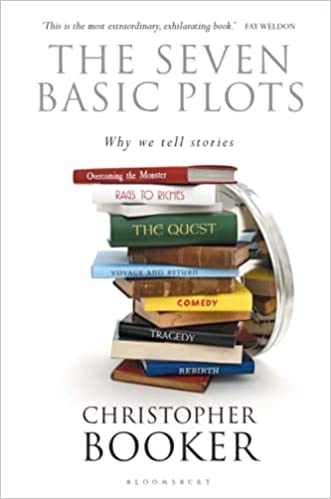
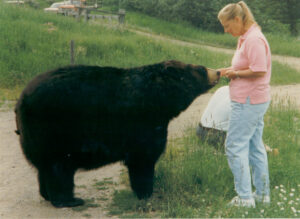
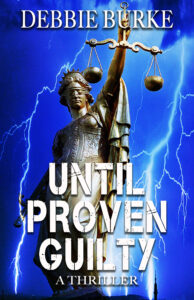
 There’s a disturbing new trend on social media that could bankrupt authors. I first learned about it on Facebook, but it’s since traveled throughout all social media.
There’s a disturbing new trend on social media that could bankrupt authors. I first learned about it on Facebook, but it’s since traveled throughout all social media. By Elaine Viets
By Elaine Viets (2) Elaine: I walked over to him and looked right into his red eyes. We were both the same height.
(2) Elaine: I walked over to him and looked right into his red eyes. We were both the same height. (3) Elaine: The cut on her forehead had been stitched. She’d have a heck of a bruise there tomorrow.
(3) Elaine: The cut on her forehead had been stitched. She’d have a heck of a bruise there tomorrow.
 (6) Elaine: I fired up my iPad and opened up the Death Scene Investigation form.
(6) Elaine: I fired up my iPad and opened up the Death Scene Investigation form.

 Now hear this: My Dead-End Job mysteries Murder with Reservations, Clubbed
Now hear this: My Dead-End Job mysteries Murder with Reservations, Clubbed

 It feels like this: it’s a big mountain, full of mud. It’s raining. Hard. I’m carrying this heavy weight. But I’ve got this! It’s just that some days it’s just…so exhausting. Or I have a migraine. Or I’m running my kids around (single mom). Or I’ve got client deadlines (solopreneur).
It feels like this: it’s a big mountain, full of mud. It’s raining. Hard. I’m carrying this heavy weight. But I’ve got this! It’s just that some days it’s just…so exhausting. Or I have a migraine. Or I’m running my kids around (single mom). Or I’ve got client deadlines (solopreneur).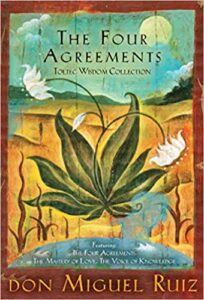 As a survivor of
As a survivor of  Rachel Thompson released the
Rachel Thompson released the  How many hours per day/week do you write? Ballpark.
How many hours per day/week do you write? Ballpark.
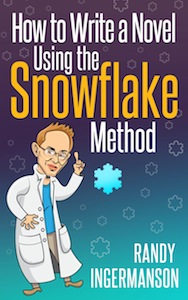
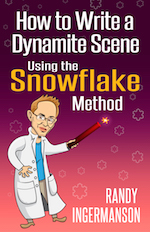
 By Elaine Viets
By Elaine Viets
 Want to go trendy? For a while every third book had “Girl” in the title. That trend started with novels like Gillian Flynn’s Gone Girl and Paula Hawkins’ The Girl on the Train, not to mention The Girls With the Dragon Tattoo by Stieg Larsson. None of these women were the girl next door, but their books sold. By the way, The Girl Next Door was used by a wide range of writers, from Brad Parks to Ruth Rendall. It’s even a horror story.
Want to go trendy? For a while every third book had “Girl” in the title. That trend started with novels like Gillian Flynn’s Gone Girl and Paula Hawkins’ The Girl on the Train, not to mention The Girls With the Dragon Tattoo by Stieg Larsson. None of these women were the girl next door, but their books sold. By the way, The Girl Next Door was used by a wide range of writers, from Brad Parks to Ruth Rendall. It’s even a horror story.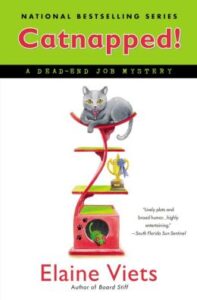
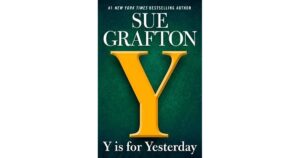 Series titles: Sue Grafton has her alphabet series, beginning with A Is for Alibi and ending with Y Is for Yesterday. Mary Higgins Clark and her partner-in-crime Alafair Burke have a song title series, starting with You Don’t Own Me. Stephanie Plum uses numbers. Her latest is Game on: Tempting Twenty-eight.
Series titles: Sue Grafton has her alphabet series, beginning with A Is for Alibi and ending with Y Is for Yesterday. Mary Higgins Clark and her partner-in-crime Alafair Burke have a song title series, starting with You Don’t Own Me. Stephanie Plum uses numbers. Her latest is Game on: Tempting Twenty-eight.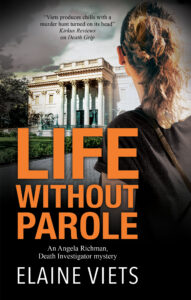 Enter to win a free copy of Life Without Parole, my latest Angela Richman, death investigator mystery. Stop by Kings River Life magazine:
Enter to win a free copy of Life Without Parole, my latest Angela Richman, death investigator mystery. Stop by Kings River Life magazine:  Those dang pesky buggers that sneak into first drafts and weaken the writing are called filler words and phrases—also known as fluff.
Those dang pesky buggers that sneak into first drafts and weaken the writing are called filler words and phrases—also known as fluff.